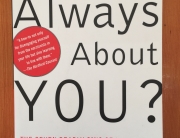 The teenage years are a time when school, homework, extracurricular activities, active social lives and part time jobs keep kids busy from early in the morning until late at night. They are likely to try to make up for a lack of sleep by “sleeping in” on the weekends. Unfortunately this contributes to an irregular sleep schedule and actually makes the problem worse, setting them up for a kind of jet lag when Monday morning rolls around.
The teenage years are a time when school, homework, extracurricular activities, active social lives and part time jobs keep kids busy from early in the morning until late at night. They are likely to try to make up for a lack of sleep by “sleeping in” on the weekends. Unfortunately this contributes to an irregular sleep schedule and actually makes the problem worse, setting them up for a kind of jet lag when Monday morning rolls around.
In addition to having difficulty turning off the worries of their day, most teens show signs of delayed circadian rhythms –which contribute to their inability to fall asleep until later at night. During puberty, the biological clock in their brain naturally sets to a later time. The pineal gland releases melatonin later at night and this causes teens to fall sleep later.
Then, when it’s time to get up, a teenager’s body clock is likely to still be producing the night time hormones. This makes it hard for them to feel active and energetic in the morning. Since many teens aren’t sleepy until around 11.00pm, but need to be at school by 7.30 or 8.00 they do not get an adequate amount of sleep.
A growing body of research suggests that starting high school later, more in line with their natural body rhythms, improves attendance, achievement, and grades and reduces tardiness, in a landmark study a few years ago, the morning school bell was delayed for an hour in Edina, Minnesota. As a result, test scores on the SAT college entrance exams jumped more than 100 points on average. Unfortunately, most schools are not set up to start later and accommodate teen’s sleep needs.
Lack of sleep can be very dangerous for young drivers and it’s vitally important to warn teenagers about the dangers of driving whilst drowsy. Although parents always warn their teens about the dangers of drinking and driving, many of us forget to warn out teens about the hazards of driving when they’re drowsy, a very real danger today. Drowsiness is the principle factor in about 100,000 car crashes each year in the United States.
If you feel your teenager has a serious problem falling asleep at night and simply can’t get going in the morning, then book in to have a naturopathic assessment. Some natural therapies include melatonin, light therapy, meditation and relaxation practises.
Things You Can Do To Help:
• stress the importance of a consistent bedtime• help teens learn relaxation techniques such as creative visualisation and progressive relaxation, in order to unwind and signal the body that it’s time to sleep• putting their thoughts or worries in a journal often helps to put their problems to rest enabling them to sleep• have them turn off all electronic equipment, including phones, at least an hour before bed• avoid caffeinated drinks at all costs• encourage regular exercise, especially outside in the morning











































































































































